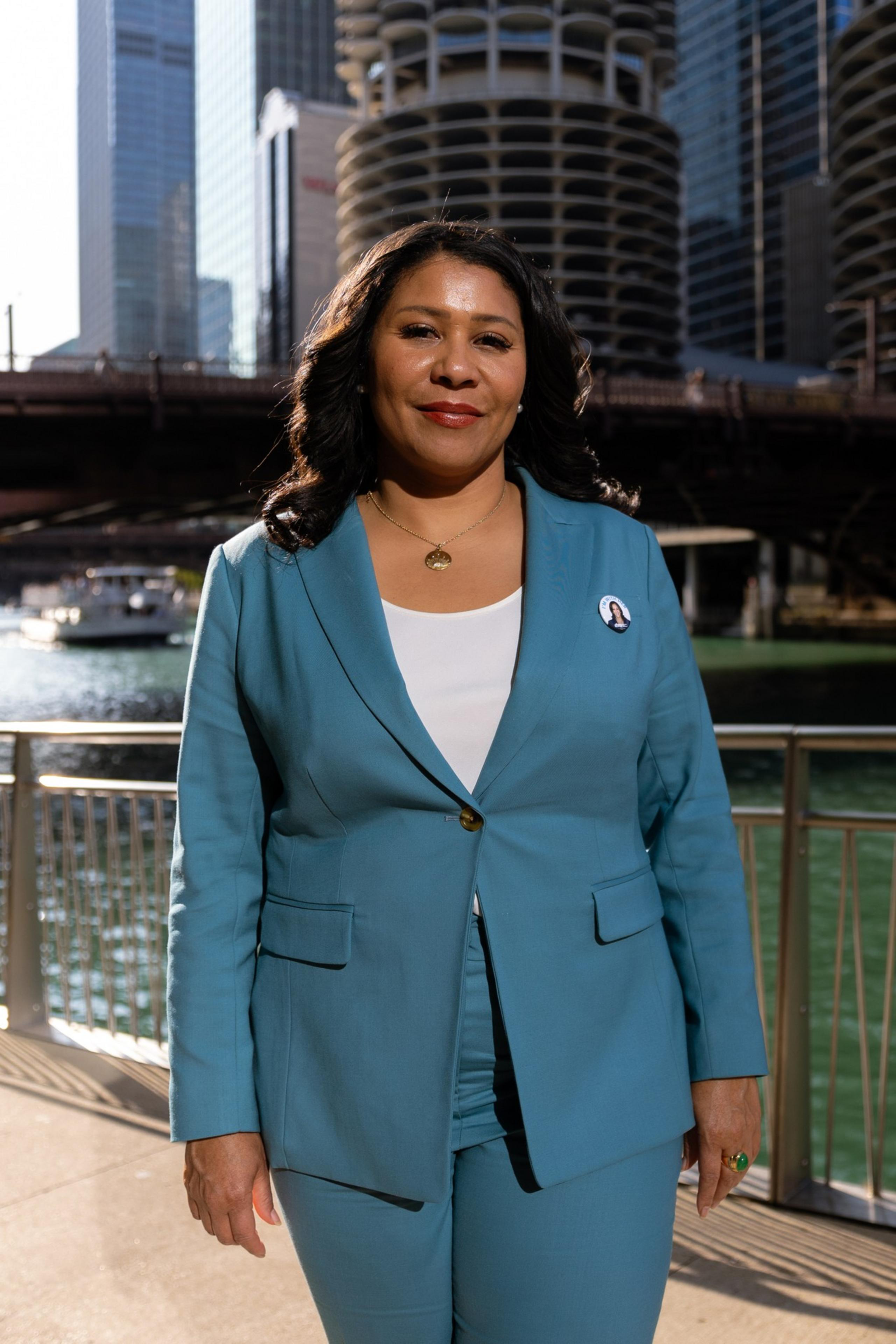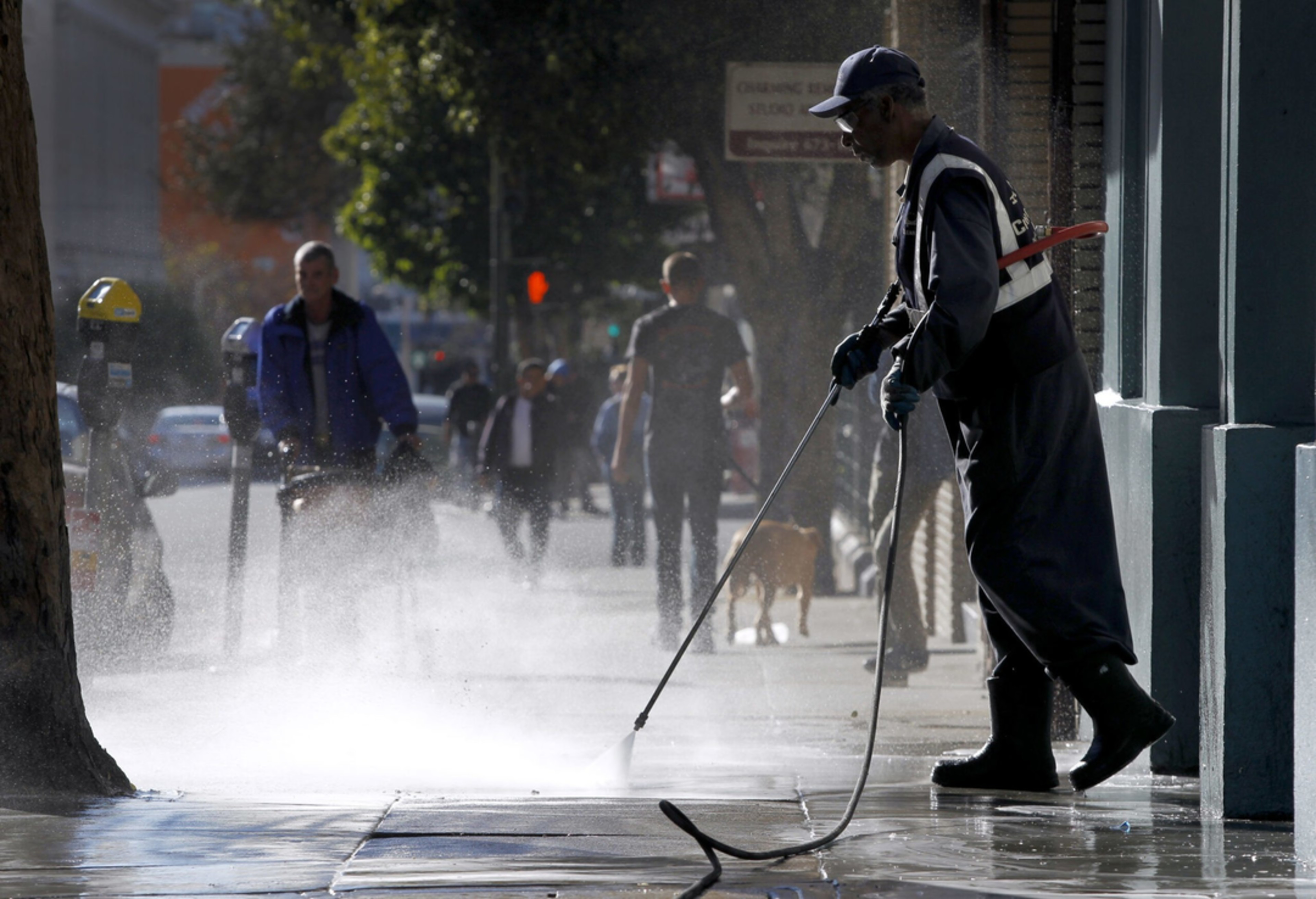It’s a rite of passage in San Francisco: stepping over a pile of filthy boxes, Uber Eats takeout containers, and a dirty pair of shoes as you walk down the street. Even if you happen to pass a trash can, there’s a good chance there’s a bin liner missing.
The city’s streets are grimy and littered with garbage, a study confirmed last year. It’s a problem that’s been addressed by the leading candidates for mayor, each of whom has promised to sweep up the trash and keep the avenues sparkling clean. How will they do that? We attempted to find out in our “Ask the candidates” series.
We’ve collected questions from readers on the most pressing issues facing San Francisco and are publishing them leading up to the Nov. 5 election.
Here’s what a reader named Gina G. had to say:
“No one is picking up the garbage, and the amount of trash everywhere is unprecedented. Even the public trash can near my building has been missing its door for a year, and reports to 311 go unanswered. What is your plan to fix this?”

Mayor London Breed
Breed called tackling rubbish “no easy task” but maintains that it is a top priority of her administration. She said she has provided ample resources to the trash-fighting Department of Public Works staffers and noted that 311 calls are down, which she described as an indication of progress on the garbage issue.
“DPW aims to resolve 95% of street cleaning requests within 48 hours, which is on top of the regular cleaning they do all over the city every day,” Breed wrote in her questionnaire. “And I’m proud that we met that goal. But there is always more work to be done, and I am committed to doing that work.”
Breed said she has put additional resources toward power-washing teams, steam trucks, funding for graffiti abatement, and more Public Works cleaning shifts in afternoons and evenings. She also has funded more trash cans, she said, and promises to get rid of broken ones.
“All of us working together can make this city shine, and I am committed to keeping the necessary city investments going to do just that,” she wrote.

Aaron Peskin
The progressive-leaning Board of Supervisors president blames the junk challenge on Breed, pointing to bespoke trash cans that cost up to $21,000 a pop and became a punch line and symbol of San Francisco’s governance problems (opens in new tab).
Peskin said he would instead purchase thousands of “off-the-shelf, inexpensive” bins to immediately line streets. Additionally, he will require the city’s garbage contractor, Recology, to meet “cleanliness and service standards” that include the areas around the bins, where trash often spills over.
“I will set standards and metrics for cleaning our streets and hold the City’s contractors accountable,” he wrote in his questionnaire. “Like so many problems facing San Francisco, the solutions start not with talk, but with smart management and that is what I will bring to the mayoralty.”

Daniel Lurie
The self-proclaimed City Hall outsider says the city’s streets have “deteriorated to unprecedented levels” and blamed the issue partially on drug use and individuals with visible mental health crises.
Lurie is selling his “Home Run” shelter plan, which he claims will end homelessness “as we know it within the city limits,” for less money than is currently spent. The plan would create 1,500 emergency shelter beds in the first six months and 2,500 interim units in the first two years. He points to a development at 33 Gough St (opens in new tab). as a model for generating quick shelter for homeless San Franciscans.
“It’s a smarter, more sustainable approach that benefits everyone, from taxpayers to those experiencing homelessness,” Lurie wrote in his questionnaire. “We need to both address unsheltered homelessness and help people off the streets.”

Mark Farrell
The former interim mayor has proposed several structural reforms to tackle the garbage challenge, including bringing Recology under the city’s Public Utilities Commission. That shift, he argues, will cut costs and spur the ability to place more trash bins around the city, with more frequent pick-ups.
Farrell is also pushing for more Big Belly bins (opens in new tab), which are sealed and can be opened with a foot pedal. He would also like to see more resources go toward addressing 311 complaints faster.
“We must adopt a zero-tolerance approach to dirty and unsafe streets,” he wrote in his questionnaire.
Want to read each candidate’s entire response on garbage? Click here (opens in new tab).

